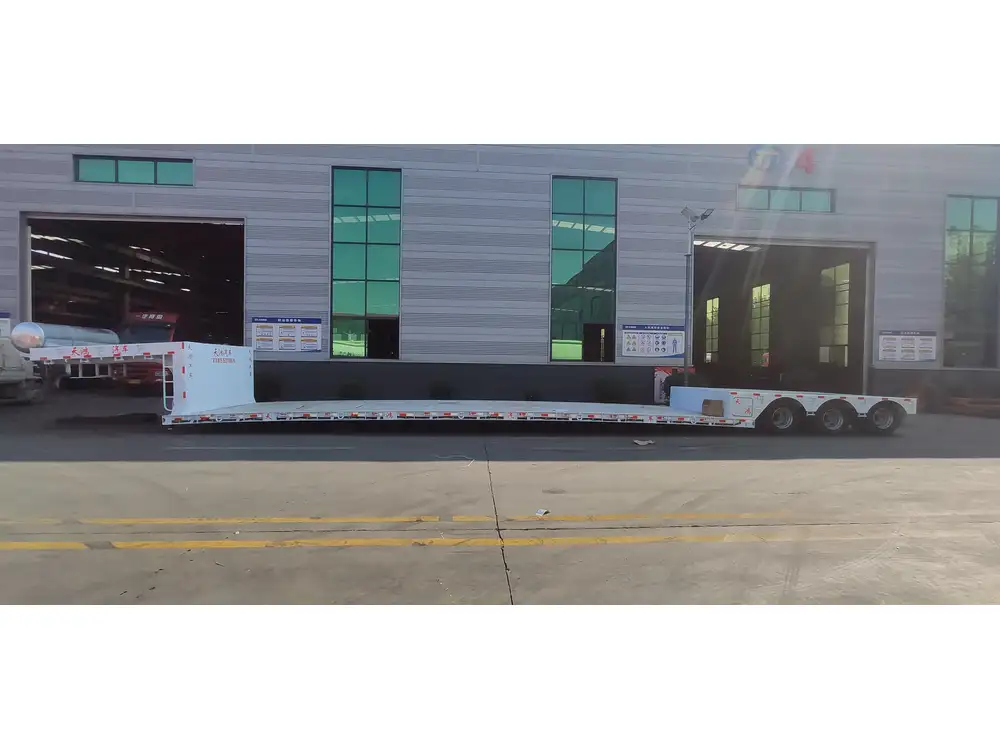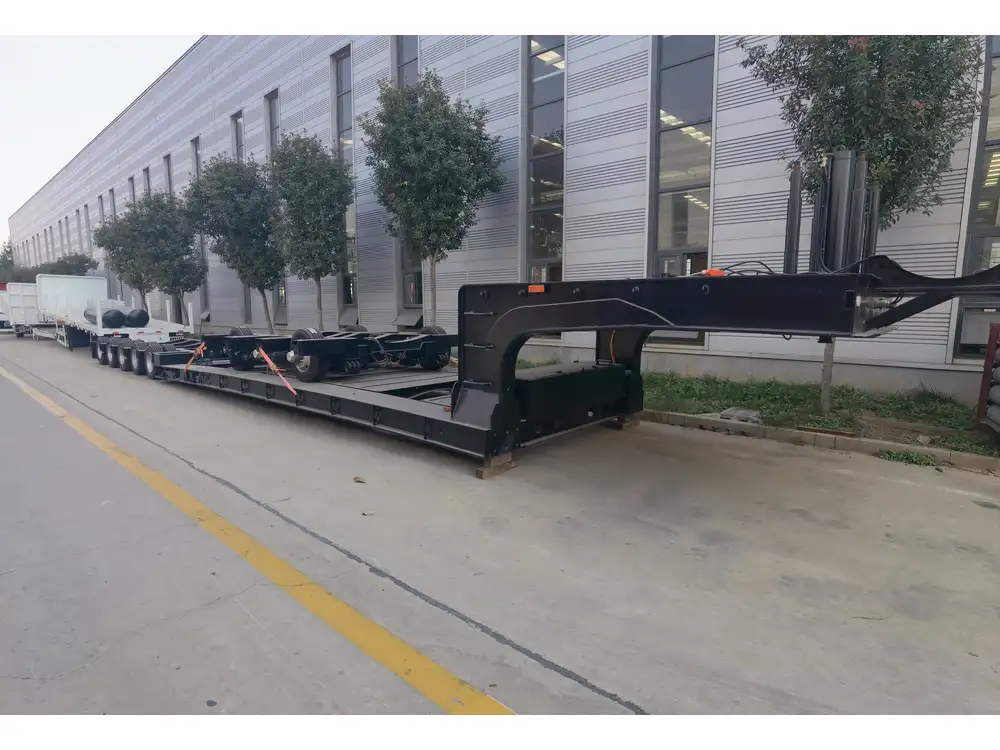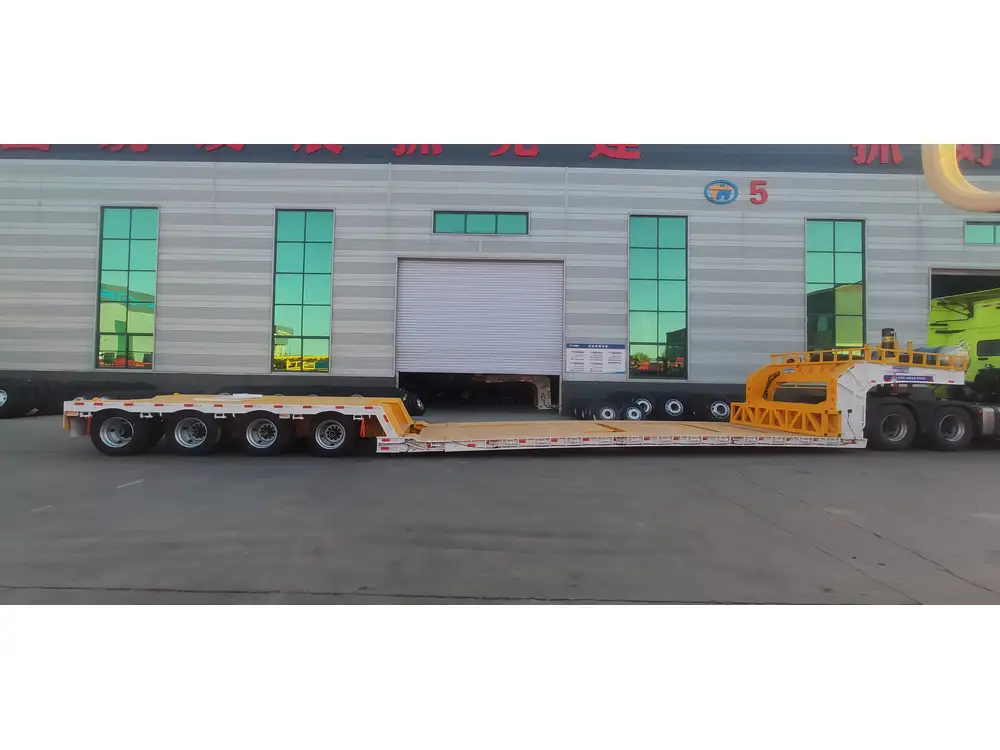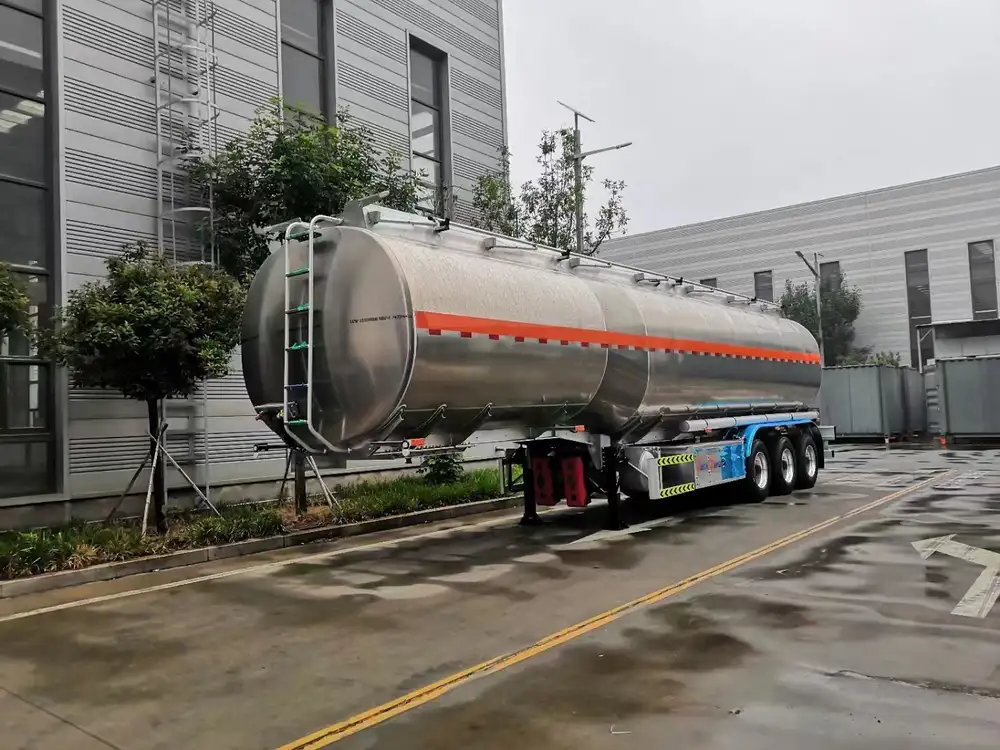When it comes to the transport and logistics industry, the choice of equipment can make or break efficiency and profitability. Among these, skeletal container semi-trailers stand out as a critical asset for shipping containers. Selecting the right manufacturer is paramount. In this guide, we delve into the essential aspects of choosing a skeletal container semi-trailer manufacturer, highlighting their features, benefits, and considerations to make an informed decision.
Understanding Skeletal Container Semi-Trailers
What is a Skeletal Container Semi-Trailer?
A skeletal container semi-trailer is a chassis designed specifically to transport shipping containers. Typically constructed with robust materials like steel or aluminum, they are engineered for strength and resilience, ensuring that containers can be loaded and unloaded with ease. The design usually features:
- Minimal Bed Height: To facilitate container loading and unloading.
- Extendable Lengths: Allowing for different container sizes.
- Heavy-Duty Equipment: Designed to endure varying load weights.

Key Benefits of Using Skeletal Container Semi-Trailers
1. Enhanced Load Efficiency
Skeletal trailers optimize space utilization, allowing for multiple types of containers to be transported simultaneously. This provides shipping companies with the flexibility to deliver a broader range of goods efficiently.
2. Durability and Longevity
Manufacturers focused on quality produce trailers that withstand harsh environmental conditions. Investing in a durable skeletal trailer translates to fewer damages, extended service life, and less frequent replacements.

3. Cost Effectiveness
While the initial investment may seem substantial, high-quality skeletal trailers offer value over time through reduced maintenance costs and enhanced operational capabilities.
4. Versatility in Transport
These trailers offer compatibility with various cargo types, not limited to standard ISO containers. This versatility supports logistics companies in adapting to shifts in consumer demand and market trends.
Evaluating Potential Manufacturers
When searching for a skeletal container semi-trailer manufacturer, specific criteria must be considered to ensure you secure a reliable and high-quality product.

1. Reputation and Experience
Investigate the manufacturer’s standing in the industry. A manufacturer with years of experience will likely offer better quality products and service. Consider looking for:
- Industry Certifications: ISO certification can indicate adherence to international quality standards.
- Reviews and Testimonials: Insights from previous customers can provide valuable perspectives on their experiences.
2. Product Range and Customization Options
A reputable manufacturer should offer a varied range of skeletal container semi-trailers with customization options. This could include dimensions, load capacity, and special features suited to specific transport needs. Investigate if they provide:
| Feature | Details |
|---|---|
| Length | Various configurations available (20ft, 40ft, etc.) |
| Weight Capacity | Options for high-capacity models |
| Accessories | Options for adding ramps, extra supports, etc. |
3. Material Quality
Evaluate the types of materials used in manufacturing their trailers. High-quality materials improve durability and reduce the risk of breakdowns. Common materials include:
- Aluminum: Lightweight and corrosion-resistant.
- High-Strength Steel: Offers superior strength and longevity.

4. Innovative Design and Technology
Manufacturers that employ innovative technologies in their designs can provide added benefits, such as:
- Load Monitoring Systems: Allow real-time tracking of load weight.
- Anti-theft Features: Enhanced security for high-value shipments.
5. After-Sales Service and Support
Reliable after-sales service is a crucial factor in selecting a manufacturer. Companies that support their products with solid warranties, maintenance programs, and customer service can save businesses considerable expenses in the long run. Look for:
- Maintenance Plans: Scheduled check-ups and servicing can prolong the trailer’s lifespan.
- Technical Support: Instant support for operational issues or questions.
Cost Considerations

Understanding Pricing Factors
When evaluating the total expenditure for a skeletal container semi-trailer, take into account the following factors:
| Factor | Description |
|---|---|
| Base Price | The initial cost of the trailer without extras. |
| Customization Costs | Additional fees for tailored specifications. |
| Maintenance | Anticipated upkeep expenses, factoring in warranty provisions. |
| Financing Options | Availability of payment plans or leasing could impact cash flow. |
Balancing Cost with Quality
While budget considerations are essential, the adage “you get what you pay for” rings especially true in the realm of transportation equipment. A less expensive semi-trailer may lead to higher maintenance costs and operational inefficiencies. Prioritize suppliers who seem to strike a balance between quality and affordability.
Compliance and Safety Standards

Importance of Safety Regulations
With regulations governing the transportation industry becoming increasingly stringent, it’s essential to select a manufacturer that complies with local and international safety standards. Ensure they focus on:
- Load Distribution: Proper design to prevent swaying or instability on the road.
- Brake Systems: Advanced braking systems to enhance safety, especially under load.
Environmental Considerations
Increasingly, logistics providers are under pressure to conform to environmental standards. Manufacturers that adopt eco-friendly practices and materials can offer a competitive edge, making them an attractive choice.
Frequently Asked Questions (FAQs)

What is the average lifespan of a skeletal container semi-trailer?
Typically, a well-maintained skeletal container semi-trailer can last anywhere from 10 to 15 years.
How do I know what size skeletal trailer I need?
Analyze your shipping needs: consider the types and dimensions of containers you handle regularly and the weight they generally carry.
Are custom trailers more expensive?
Custom trailers usually cost more due to tailored specifications and components. However, they can block inefficiencies and increase overall operational performance, justifying the expense.

Can I use a skeletal trailer for purposes other than shipping containers?
While primarily designed for containers, many skeletal trailers can also accommodate different cargo types with appropriate modifications.
Conclusion
Selecting the right skeletal container semi-trailer manufacturer is a pivotal decision in optimizing your transport operations. By understanding your operational needs and the various attributes of potential manufacturers, you can make a choice that not only meets your current demands but adapts gracefully to future challenges in the logistics landscape. Engaging with manufacturers that prioritize quality, innovation, customization, and post-sale support will significantly impact your business efficiency and success. Ultimately, a well-chosen skeletal container semi-trailer will be an investment that pays dividends in operational performance.



